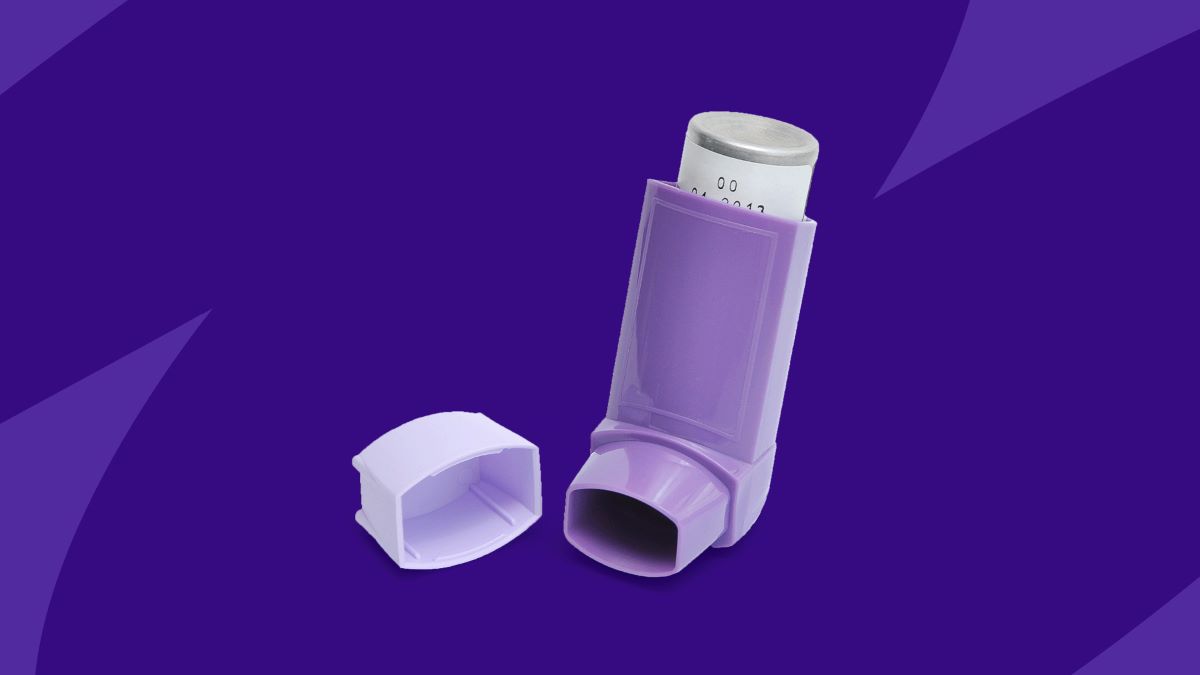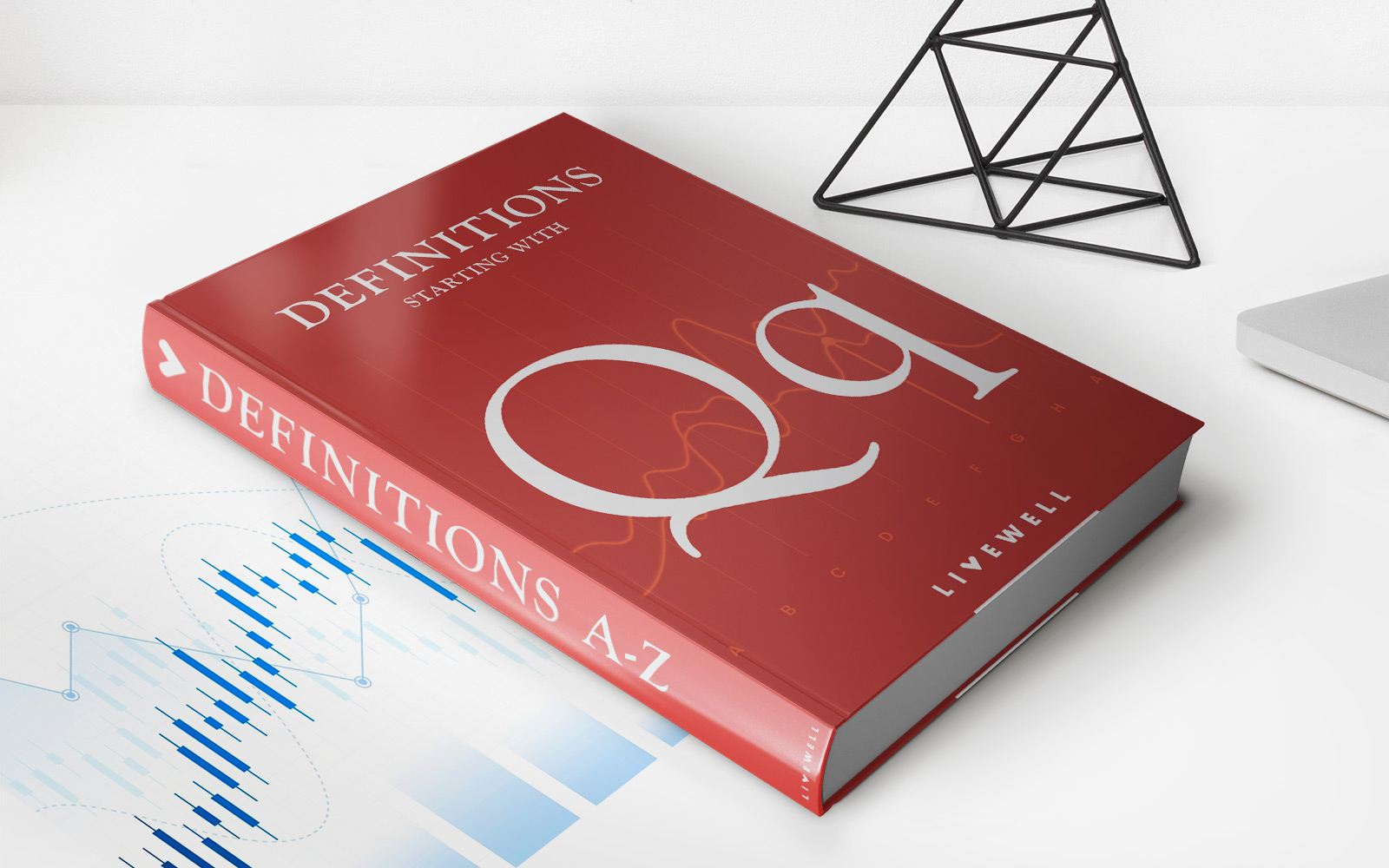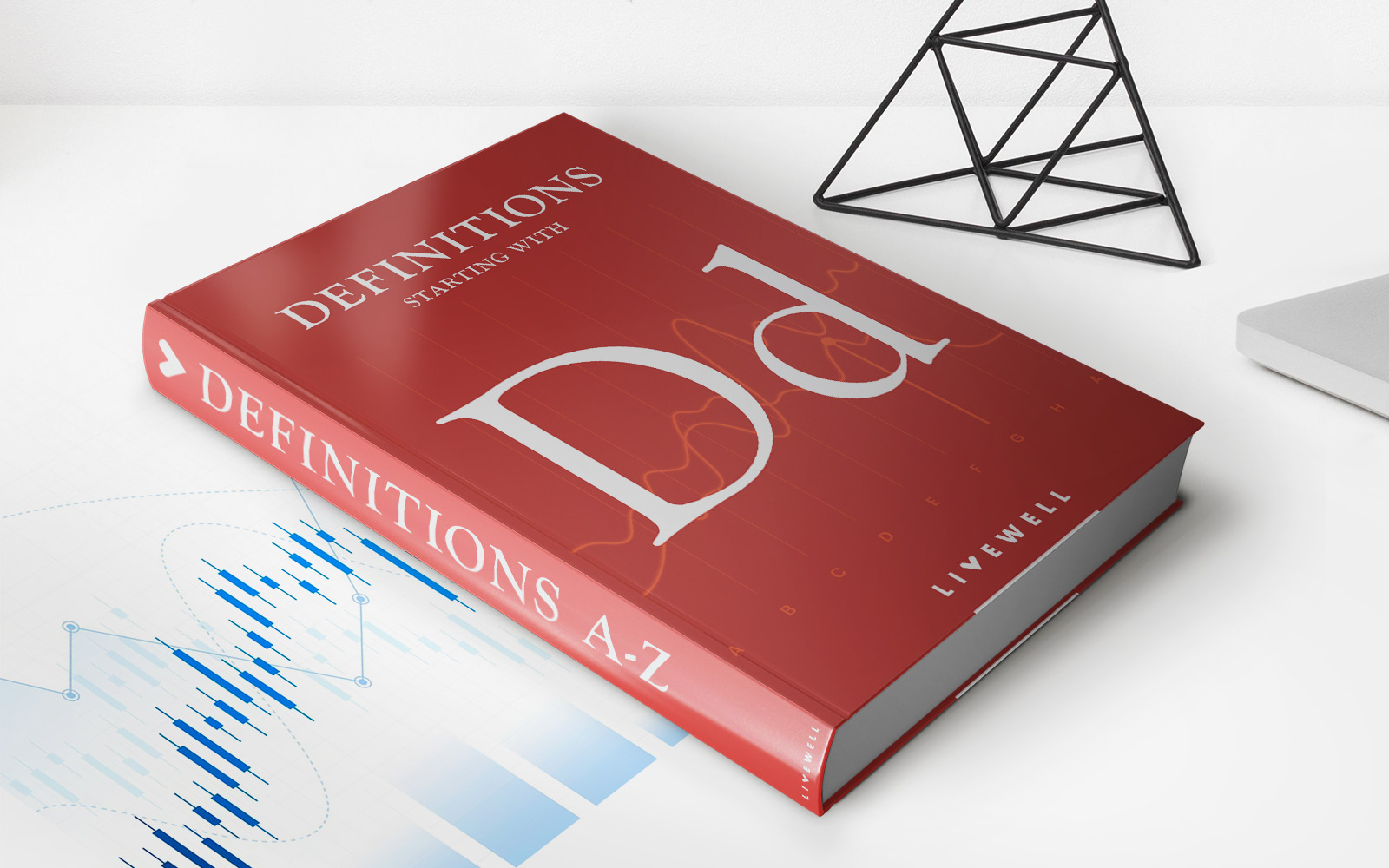

Finance
What Is MGA In Insurance?
Modified: February 21, 2024
Learn what MGA stands for in insurance and how it relates to finance. Understand the role and benefits of MGA in the insurance industry.
(Many of the links in this article redirect to a specific reviewed product. Your purchase of these products through affiliate links helps to generate commission for LiveWell, at no extra cost. Learn more)
Table of Contents
Introduction
Insurance is a crucial aspect of our lives, providing protection and peace of mind in case of unexpected events. But have you ever wondered how insurance companies operate behind the scenes? While many insurance policies are sold directly by insurance companies, there is also a significant role played by Managing General Agents (MGAs).
MGAs are an essential part of the insurance industry, acting as intermediaries between insurance carriers and insurance brokers or agents. They play a vital role in underwriting, policy administration, and claims management. In this article, we will explore what MGAs are and why they are significant in the insurance landscape.
MGA stands for Managing General Agent. It is an entity or individual that has the authority to underwrite risks on behalf of insurance carriers. They are responsible for managing and distributing insurance products to insurance brokers or agents, who, in turn, sell them to the end consumers.
The primary function of an MGA is to underwrite risks. This means they assess the risk associated with a potential policyholder and determine whether to accept or reject the application. They evaluate factors such as the applicant’s age, health condition, occupation, and the type of coverage required. Based on their assessment, they set the premium amount and terms of the policy.
Once a policy is issued, MGAs also handle the policy administration tasks. This includes issuing policy documents, collecting premiums, and managing policy renewals and endorsements. They act as a single point of contact for insurance brokers or agents, providing them with the necessary support and guidance throughout the policy lifecycle.
Furthermore, MGAs handle claims management, ensuring a smooth and efficient process for policyholders. They assess the legitimacy of claims, review policy terms and conditions, and work closely with insurance carriers to facilitate prompt claim settlements.
Overall, MGAs play a critical role in the insurance industry by bridging the gap between insurance carriers and insurance brokers or agents. They not only facilitate the underwriting and administration processes but also offer expertise and market knowledge to insurance brokers or agents.
Definition of MGA
A Managing General Agent (MGA) is a specialized entity or individual that has been granted the authority by insurance carriers to underwrite and manage insurance policies on their behalf. MGAs act as intermediaries between insurance carriers and insurance brokers or agents, providing essential services related to underwriting, policy administration, and claims management.
MGAs have a specific focus on a particular line of business or industry. They partner with insurance carriers who may not have the necessary expertise or resources to handle the underwriting and distribution of certain types of insurance products. By working with MGAs, insurance carriers can leverage their expertise and market knowledge to reach a broader customer base.
One defining characteristic of an MGA is the authority and discretion given to them by insurance carriers. Unlike insurance brokers or agents who act as representatives of insurance companies, MGAs have the power to make underwriting decisions and bind coverage directly. They have the authority to accept or reject insurance applications, set premium rates, and issue policies on behalf of insurance carriers.
MGAs function as independent entities, distinct from insurance carriers, although they work closely with carrier partners to ensure compliance with their guidelines and regulations. They have a contractual agreement with the insurance carriers they represent, outlining their responsibilities, authorities, and compensation structures.
It’s important to note that MGAs are not insurance companies themselves. They do not assume the risk associated with insurance policies they underwrite. Instead, they act as intermediaries, facilitating the distribution of insurance products and managing policy administration processes on behalf of insurance carriers.
In summary, a Managing General Agent (MGA) is a specialized entity or individual with the authority to underwrite and manage insurance policies on behalf of insurance carriers. They act as intermediaries, providing essential services related to underwriting, policy administration, and claims management.
Role of MGAs in Insurance
Managing General Agents (MGAs) play a vital role in the insurance industry, acting as intermediaries between insurance carriers and insurance brokers or agents. They have specific responsibilities and functions that contribute to the efficient and effective operation of the insurance ecosystem.
One of the primary roles of MGAs is underwriting. They assess the risks associated with potential policyholders, evaluate applications, and determine whether to accept or reject them. MGAs leverage their expertise and industry knowledge to make informed underwriting decisions on behalf of insurance carriers. They consider various factors such as the applicant’s risk profile, claims history, and the type of coverage requested to determine the appropriate premium rate and policy terms.
Once a policy is underwritten and issued, MGAs also handle the policy administration tasks. This includes managing policy documentation, collecting premiums, and handling policy renewals and endorsements. They act as a central point of contact for insurance brokers or agents, providing them with the necessary support and guidance throughout the policy lifecycle.
MGAs also play a crucial role in distribution. They have established relationships with insurance brokers and agents, who rely on them to access competitive insurance products. MGAs offer a variety of insurance solutions tailored to specific industries or segments, allowing brokers and agents to offer their clients customized coverage options. By partnering with MGAs, insurance brokers and agents can tap into their expertise, market knowledge, and product offerings, expanding their portfolio and meeting the diverse needs of their clients.
Additionally, MGAs provide claims management services. When a policyholder submits a claim, the MGA evaluates the validity of the claim, reviews the policy terms and conditions, and works closely with insurance carriers to facilitate a fair and prompt claim settlement. They act as an intermediary and advocate for policyholders, ensuring a smooth claims process.
Overall, MGAs play a vital role in the insurance industry by handling underwriting, policy administration, distribution, and claims management. They bring expertise, market knowledge, and flexibility to the insurance ecosystem, facilitating the efficient and effective delivery of insurance products and services to customers.
Benefits of Using an MGA
Using a Managing General Agent (MGA) in the insurance industry offers numerous benefits for insurance carriers, insurance brokers or agents, and policyholders. Let’s explore some of the key advantages of partnering with an MGA:
- Expertise and Specialization: MGAs often specialize in specific lines of business or industries. They have in-depth knowledge and expertise in these areas, allowing them to offer tailored insurance solutions to insurance brokers or agents and their clients. This specialization ensures access to specialized coverage options and comprehensive risk assessment.
- Market Access: MGAs have established relationships with multiple insurance carriers, enabling them to provide a wide range of insurance products. Insurance brokers or agents partnering with an MGA gain access to a diverse portfolio of insurance options, enhancing their ability to meet the unique needs of their clients.
- Efficiency and Speed: MGAs streamline the underwriting and policy administration processes, reducing the time and effort required for insurance brokers or agents. They have the authority to make underwriting decisions, issue policies, and handle policy documentation, enabling faster turnaround times. This efficiency allows insurance brokers or agents to focus on providing exceptional service to their clients.
- Claims Management: MGAs play a crucial role in claims management, ensuring a fair and efficient process for policyholders. They have the expertise to assess claims, review policy terms, and collaborate with insurance carriers to expedite claim settlements. Their involvement in claims handling helps policyholders navigate the complex process and receive timely compensation.
- Flexibility and Customization: MGAs offer flexibility in product design and coverage options. They have the ability to tailor insurance solutions to meet the specific needs of insurance brokers or agents and their clients. This customization ensures that policies align with the unique requirements of various industries and individuals.
- Support and Guidance: MGAs provide ongoing support and guidance to insurance brokers or agents throughout the policy lifecycle. They act as a resource, offering training, marketing materials, and technical expertise. This support helps insurance brokers or agents enhance their knowledge, improve their sales efforts, and deliver exceptional service to their clients.
Partnering with an MGA offers numerous benefits for insurance carriers, insurance brokers or agents, and policyholders. The expertise, market access, efficiency, and support provided by MGAs contribute to a seamless and successful insurance experience for all involved parties.
Risks and Challenges of MGA in Insurance
While there are many benefits to using a Managing General Agent (MGA) in the insurance industry, there are also certain risks and challenges that must be considered. Understanding these potential drawbacks can help insurance carriers, insurance brokers or agents, and policyholders navigate the MGA relationship more effectively.
- Lack of Control: Insurance carriers may have limited control over the underwriting decisions and policy administration processes when working with an MGA. The MGA acts on behalf of the carrier and has the authority to make decisions within the agreed-upon guidelines. This lack of direct control can pose a challenge for insurance carriers when it comes to ensuring consistent underwriting standards and adherence to company policies.
- Fraud and Compliance: MGAs are responsible for verifying the accuracy of insurance applications and ensuring compliance with regulatory requirements. However, there is a risk of fraud or non-compliance if the MGA fails to implement robust procedures. Insurance carriers must carefully evaluate potential MGAs and conduct periodic audits to mitigate these risks.
- Conflicts of Interest: MGAs have relationships with multiple insurance carriers, which can lead to conflicts of interest. In some cases, an MGA may favor certain insurance carriers over others, potentially leading to biased underwriting decisions or unequal distribution of policies. Insurance carriers should closely monitor these relationships to ensure fairness and transparency.
- Financial Stability: The financial stability of an MGA is crucial. If an MGA encounters financial difficulties or goes out of business, it can create disruptions in policy administration and claims management for insurance carriers and policyholders. Insurance carriers should conduct thorough due diligence to assess the financial strength of potential MGAs before entering into partnerships.
- Loss of Intellectual Property: When working with an MGA, insurance carriers may need to share proprietary underwriting guidelines and other intellectual property. This poses a risk of unauthorized use or disclosure of sensitive information. Proper legal agreements and safeguards should be in place to protect the intellectual property of insurance carriers.
It’s important to note that these risks and challenges can be mitigated through effective risk management, due diligence, and regular monitoring by insurance carriers. Clear communication and a strong partnership between the MGA and the insurance carrier can help address potential issues and ensure a successful and mutually beneficial relationship.
Key Differences Between MGA and Traditional Insurance Companies
Managing General Agents (MGAs) and traditional insurance companies have distinct characteristics and operate differently within the insurance industry. Understanding these key differences can provide insights into how MGAs function and how their role differs from that of traditional insurance companies.
- Underwriting Authority: One significant difference between MGAs and traditional insurance companies is the underwriting authority. MGAs have the authority to underwrite and bind coverage on behalf of insurance carriers, whereas traditional insurance companies make their own underwriting decisions and assume the risk associated with the policies they issue.
- Distribution Model: Traditional insurance companies typically sell insurance policies directly to policyholders or through their own sales channels, such as captive agents. In contrast, MGAs work with insurance brokers or agents who sell insurance products to end consumers. MGAs act as intermediaries, connecting insurance carriers with insurance brokers and agents.
- Specialization: MGAs often specialize in specific lines of business or industries, focusing their expertise on niche markets. Traditional insurance companies, on the other hand, typically offer a broader range of insurance products and may serve a wider customer base.
- Size and Resources: Traditional insurance companies are often large organizations with substantial resources and infrastructure. They have the capacity to handle various aspects of insurance operations, including underwriting, policy administration, claims management, and marketing. MGAs, while they can be sizable entities, may have a more limited scope and rely on insurance carriers for certain functions.
- Ownership and Control: Traditional insurance companies are owned by shareholders or policyholders and operate independently. They have complete control over their business decisions, strategic direction, and policies. In contrast, MGAs typically operate as independent entities but function on behalf of insurance carriers. They must adhere to the guidelines and requirements set by the insurance carriers they represent.
- Risk Assumption: Traditional insurance companies assume the risk associated with the policies they underwrite. They have the financial capacity to handle potential claim payouts. MGAs, on the other hand, do not bear the risk themselves. They act as intermediaries, providing underwriting services, policy administration, and claims management on behalf of insurance carriers.
Understanding these key differences between MGAs and traditional insurance companies highlights the unique roles they play within the insurance industry. MGAs offer specialized underwriting expertise and act as intermediaries, while traditional insurance companies assume the risk and provide a broader range of insurance products and services directly to policyholders.
Regulations and Compliance for MGAs
Managing General Agents (MGAs) operate within a regulated environment to ensure transparency, fairness, and compliance with industry standards. The regulations and compliance requirements for MGAs vary by jurisdiction and often involve multiple entities, including insurance regulatory authorities and insurance carriers. Let’s explore some key aspects of regulations and compliance for MGAs:
- Licensing: MGAs typically need to obtain licenses to operate within a specific jurisdiction. These licenses are granted by insurance regulatory authorities and serve as proof that the MGA meets certain requirements and is authorized to conduct insurance business.
- Contractual Agreements: MGAs have contractual agreements with insurance carriers they represent. These agreements outline the responsibilities, authorities, and compensation structures of the MGA. They also specify compliance requirements that the MGA must adhere to, such as data protection, confidentiality, and claims management standards.
- Underwriting Guidelines: MGAs must follow underwriting guidelines established by insurance carriers. These guidelines ensure consistency and compliance with the carriers’ policies and objectives. MGAs are responsible for accurately assessing risks, adhering to rating methodologies, and ensuring that underwriting decisions align with carrier guidelines.
- Financial Responsibility: MGAs are often required to demonstrate financial responsibility to ensure their ability to meet obligations to insurance carriers and policyholders. This may involve maintaining minimum capital requirements, providing financial statements, or obtaining appropriate insurance coverage, such as professional liability insurance.
- Data Protection and Privacy: MGAs handle sensitive customer data during the underwriting and policy administration processes. Compliance with data protection and privacy regulations, such as General Data Protection Regulation (GDPR) or Health Insurance Portability and Accountability Act (HIPAA), is crucial for protecting the confidentiality and privacy of policyholders’ information.
- Claims Handling: MGAs must comply with regulations related to claims handling. This includes fair claims practices, prompt claim settlement, and accurate documentation and reporting. They should have processes in place to handle and resolve policyholder complaints and disputes in a fair and transparent manner.
- Market Conduct and Misconduct: Insurance regulatory authorities monitor MGAs for market conduct and may conduct periodic audits to assess compliance. MGAs must maintain high ethical standards, transparency, and integrity in their business practices. Any misconduct or violations can lead to regulatory action, fines, or license revocation.
It is essential for MGAs to stay up-to-date with regulatory changes and compliance requirements in the jurisdictions they operate in. Compliance with regulations helps protect the interests of policyholders, insurance carriers, and the integrity of the insurance industry as a whole.
Conclusion
Managing General Agents (MGAs) play a crucial role in the insurance industry, acting as intermediaries between insurance carriers and insurance brokers or agents. They bring specialized expertise, industry knowledge, and distribution capabilities to the table, enhancing the efficiency and effectiveness of insurance operations.
MGAs provide numerous benefits, including specialized underwriting, market access, efficiency in policy administration, claims management expertise, flexibility in product offerings, and ongoing support for insurance brokers or agents. They enable insurance carriers to expand their reach, tap into niche markets, and leverage the expertise of MGAs to provide customized insurance solutions.
However, there are also risks and challenges associated with working with MGAs. These may include a potential lack of control for insurance carriers, fraud and compliance risks, conflicts of interest, financial stability concerns, and the need to protect intellectual property.
Regulations and compliance requirements govern the operations of MGAs, ensuring transparency, fairness, and compliance with industry standards. Licensing, contractual agreements, adherence to underwriting guidelines, financial responsibility, data protection, claims handling, and market conduct are critical aspects of regulatory compliance for MGAs.
In conclusion, MGAs provide significant value to the insurance industry by bringing specialized expertise, market access, and efficient operations. While there are risks and regulatory considerations, a well-managed partnership between insurance carriers, MGAs, and insurance brokers or agents can lead to successful outcomes and improved insurance services for policyholders.














